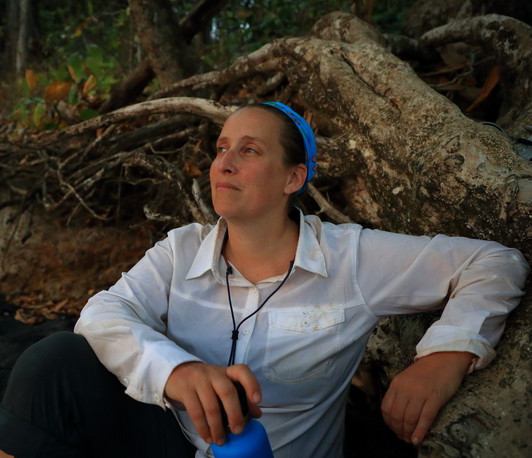Building a Science of the Sociome: Tracking how individual interactions scale to complex societies
Institutskolloquium
- Datum: 08.11.2024
- Uhrzeit: 10:30 - 12:00
- Vortragende: Prof. Dr. Margaret Crofoot
- Dr. Margaret Crofoot is a behavioral ecologist and evolutionary anthropologist interested in the evolution of social complexity. In her research, she combines observational methods and field-based experiments with emerging remote sensing technology, to reveal how group-living animals overcome conflicts of interest to achieve shared goals. She is particularly interested in how group-level traits emerge and the ways in which they shape the collective ecology of animals’ societies. Meg studied Human Biology at Stanford University (1997-2001) and obtained her Masters (2003) and PhD degrees (2008) in Anthropology from Harvard University. As a Postdoc she worked at the Smithsonian Tropical Research Institute and the Max Planck Institute for Ornithology (2008-2013). She taught as Lecturer in the Ecology and Evolutionary Biology Department at Princeton University (2009-2011) and then as Assistant Professor and Associate Professor (2013-2019) at the University of California, Davis. In recognition of her scientific accomplishments, Meg has been honored with a number of awards including the Packard Fellowship in Science and Engineering (2016) and the Alexander von Humboldt Professorship (2018). In 2019 she became Director of the Department for the Ecology of Animal Societies at the Max Planck Institute of Animal Behavior and full Professor at the University of Konstanz (https://www.ab.mpg.de/person/99737).
- Ort: IPP Garching
- Raum: Arnulf-Schlüter Lecture Hall in Building D2 and Zoom
- Gastgeber: IPP
- Kontakt: karl.krieger@ipp.mpg.de

For many animals, ecological and evolutionary success depends not only on the characteristics or decisions of lone individuals, but also on what happens when groups of individuals come together and interact. These collective behaviors and traits can transform the social landscape, giving rise to novel selective pressures that drive the evolution of social complexity. To understand how structured animal societies emerge and function, we need a common framework for quantifying the interactions—from dyad to group to population—that comprise the ‘sociome.’ Technological innovations—from satellite-based tracking and proximity loggers to drones and computer vision—can generate vast quantities of detailed, noisy data about individual behavior in social contexts, creating new opportunities to map the relationships that structure animal societies. However, our ability to collect data is quickly outstripping our ability to extract biological insight. In this talk, I will discuss the analytical, experimental and technological methods we are developing to harness these tools of our digital age, and illustrate how we are using these approaches to monitor, measure and experimentally manipulate wild animal societies in ecologically and evolutionarily relevant field settings.